No on-topic Edges & Entries today—no official Underworld post, at least (you can, however, present an argument for this being either a prologue for a to-come-at-some-point season of posts on Streams and Rivers or, perhaps, an epilogue to my recent Coastlines series, in that I talked about similar encounters then).
If you read this within twelve hours of my sending it, I shall be somewhere in the sky between Paris and Ho Chi Minh (airport: SGN, a ghost of Saigon). As I write these words, there are more than 48 hours left before this point. I’ve said it before and, no doubt, I’ll say it again, but I truly believe crafting words into magic lines of message is strange sorcery and time travel both.
This last weekend, Aurélie and I were away for a friend’s birthday celebration in la Haute-Loire, to the west of us, not too far from the northern border of Ardèche, at an altitude of 1000 metres (3281 feet). For much of the time we were in the clouds, and saw very little sun, but that did not dampen the spirits.
The company was good (I got to practice my French on subjects-other-than-Ailsa, including trying to explain what my writing is actually about, each different strand of it; this is something I struggle with in English, so it was a true challenge. It did make me think, however.), and the nature was beautiful, and rather a lot like Scotland.
On the way, I saw a common/Eurasian kingfisher (Alcedo atthis) flash across the road at one point, with the usual suspects in the Rhône valley, buzzards flying and buzzards standing, wheeling black kites, a speckling of woodpeckers, and a pilgrimage of kestrels, praying beside the road. (On the return journey, we also saw deer and a dead polecat.)
Where we stayed was close to a river (the Lignon), and I was lucky enough to have time to take a short walk along the banks twice, once on Saturday, with company, and once on Sunday morning, on my own.
On the Saturday we collected some Bolete mushrooms (AKA Penny Bun, Ceps, Porcini, etcetera) and I found some lovely marker poop by the river bank1. At the time, due to the size and consistency, I wondered if it was European Mink (Mustela lutreola) but, as the party continued, later, I continued to think about this and began to regret not doing the sniff test.
I’m sure many of you already know but, if you ever wish to tell the difference between mink and otter (Lutra lutra) poop, just have a sniff. Mink poop always smells bad. Otter poop often smells like jasmine, freshly-cut hay or, sometimes, rotten fish.
On Sunday, when I returned for the sniff test, the rock with the poop had a pair of fresh offerings—much larger markers, this time, much more familiar to me, in both shape and consistency. Definitely otter spraint. However, I still bent down to smell, of course and, as I did so, heard a sound which stood out from the gurgling song of the river to my left. A subtle splashing plop of sorts.
I’ve been observing wildlife for long enough that I didn’t move anything but my eyes. I stayed still, squatted down, my silhouette and the colouring of my clothing muted, blending in.
A heartbeat later, an otter swam past—perhaps, at most, two metres (6.5 feet) away.
She (I think it was a female from the size, but that’s not entirely certain) then proceeded to dive, search, and remerge near an island a short distance away, nosing around the roots of willow and submerged stones, looking for food. Not once did she notice me or, if she did, she was entirely indifferent to my presence. By time I got my phone camera out, she was gone.
I was obviously delighted—as I have shared before, I have seen many otters in Scotland, some very close. In that linked post, I shared the following passage:
The thing about watching nature is that you have to do it on nature’s time, not your own. You can’t rush things. Patience is key to excellent observation and this example was no exception. For me, I find sitting and waiting for an animal or bird relatively easy, the pause allows me to enter the right state of mind to pick up all the details whilst also blending into the background, unnoticed. It is a trick of breathing and a trick of staying still, willing others not to see you—I have sat in such a manner and people have walked past me, within spitting distance, unnoticed, unobserved. People are, however, usually wrapped up in their human thoughts, and ignore all the information their senses provide.
And this was no different—I was not intending to see the otter but, because I am so used to being still, to observing calmly and quietly, I had another wonderful encounter with this species.
My first otter in France.
Eventually, I set off walking again, in the same direction as the otter, downriver, finding more sign of its passing. At one point, the birds told me another human was approaching, before I had any idea as to their presence. Knowing bird language, knowing to listen for their alarms, is a soft skill, similar to the trick of blending in with nature, of being a part of it.
Soft skills are something I shall be talking more about in Ancestral, Wild Empowerment. They are the things which take time to learn, specifically, time living out in nature. You can learn how to build a shelter, or how to light fires with sticks within a short period of time; those are hard skills (admittedly hard skills are additionally enhanced by experience and soft skills, too, but that is just muddying the waters for the sake of this point).
To learn bird calls, in this case great tit (Parus major), especially their warning cries, is something which only comes with time. It is a remarkable thing too, when you notice this, when you realise you understand the birds and what they are saying to each other and anyone else who might listen.
‘A merlin is scything through the wood!’
‘A buzzard circles above!’
‘A cat hides there!’
‘A sparrowhawk is near!’
‘A human approaches!’
I was excited by my otter encounter and proceeded to tell the poor, haplessly entrapped man walking the other way (another partygoer) all about my meeting. In very bad French. Still, he humoured me, and seemed genuinely happy about my attempt to share this experience and my excitement with him.
And all this made me think about language, about communication, not just between people of different tongues, but other creatures who share this world of ours. The otter, leaving its spraint. The languages of the birds. The wind in the trees, different leaves making different sounds, or the river, telling me where her bed is uneven, where there is a drop, where there is another creature in her waters.
We can all learn these things. We can all listen and observe and, eventually, respond. This is remarkable and yet, to me, what is the most remarkable thing is that the vast majority (especially among so-called ‘Western’, English-speaking, nations) simply do not wish to learn.
And oh! how they are missing out.
Finally, for today, two bits of family publishing news. First, my sister Lydia has just started another of her limited, month-long series, here on Substack. This one is called ‘The Back-Folk’ and will run daily through June and is an investigation into a subject close to my heart…
Lydia’s husband, Euan, shared his first full post here this week, something I have very much been looking forward to. If, like me, you also love trees, do give him a read and subscribe. He is, as he says, a Doctor of forestry and a surgeon of trees. He knows so much about the Standing People, and I know there are lots of exciting tree-related things to come. Elms!
Until next time, hello from the past, the present and even, perhaps, a future.
One day, I'll probably subject you to a few posts on “poops I have met”. Such great things to learn, to see who else is in the area. And I have lots of images to share…


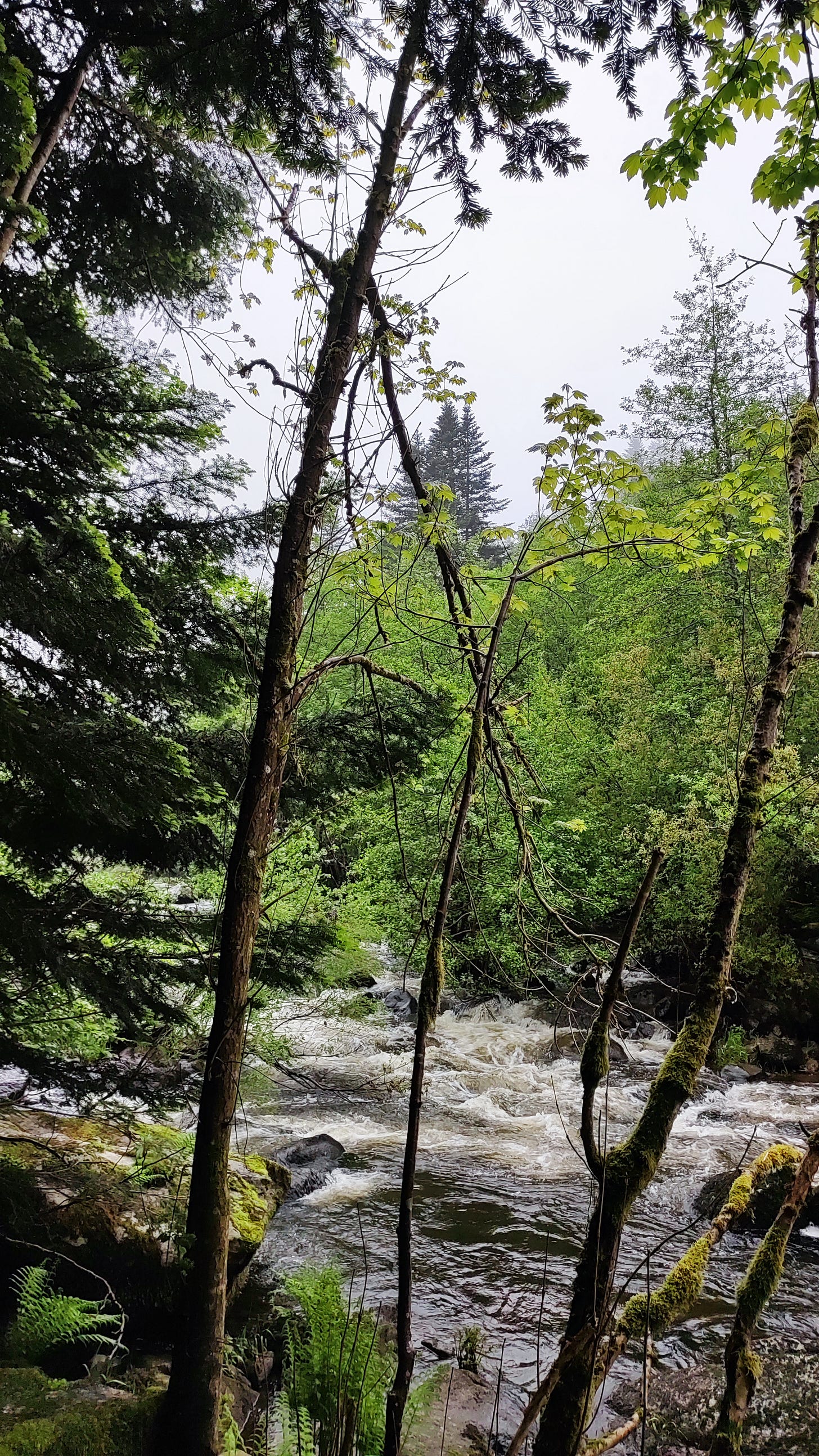
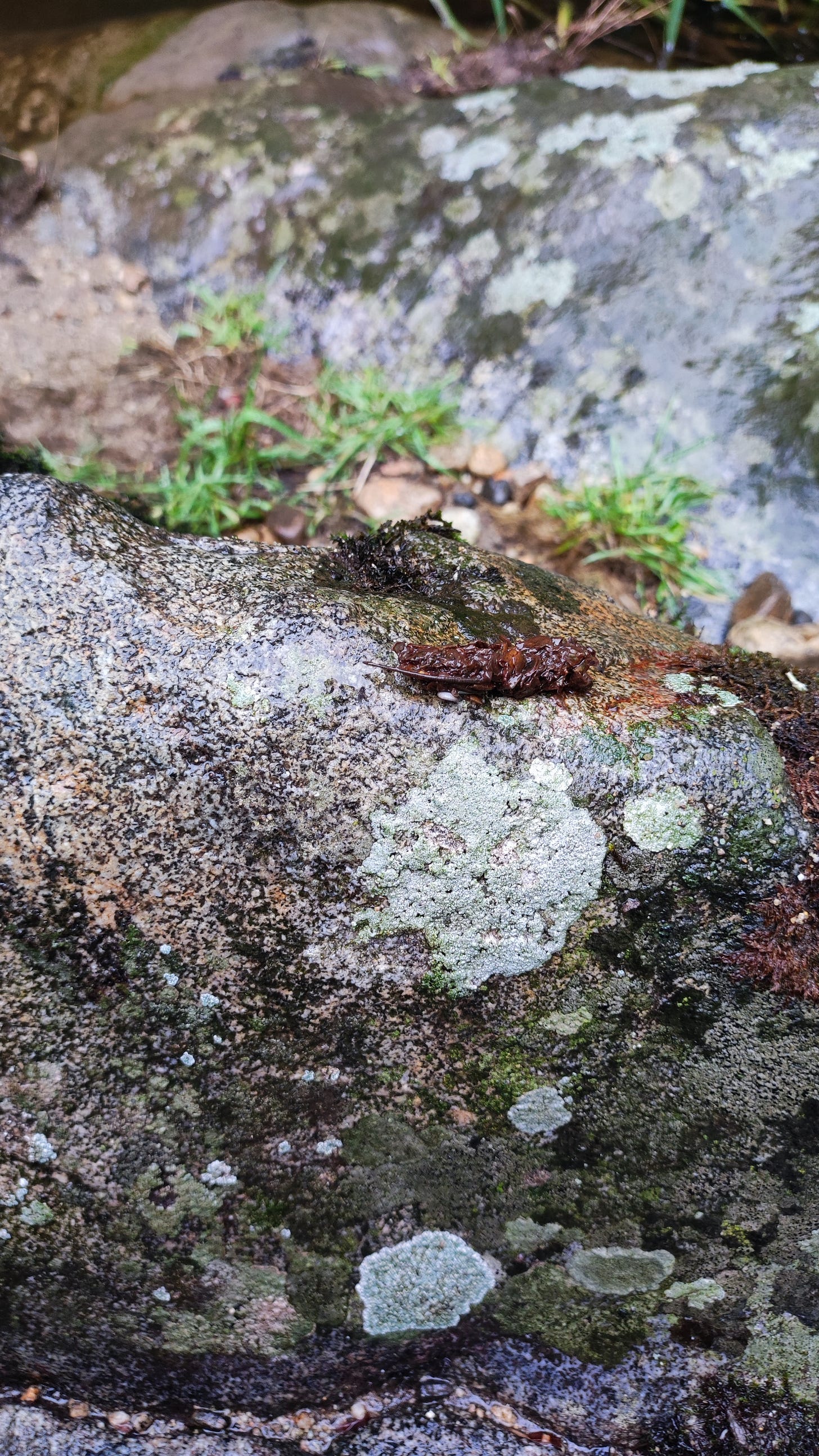
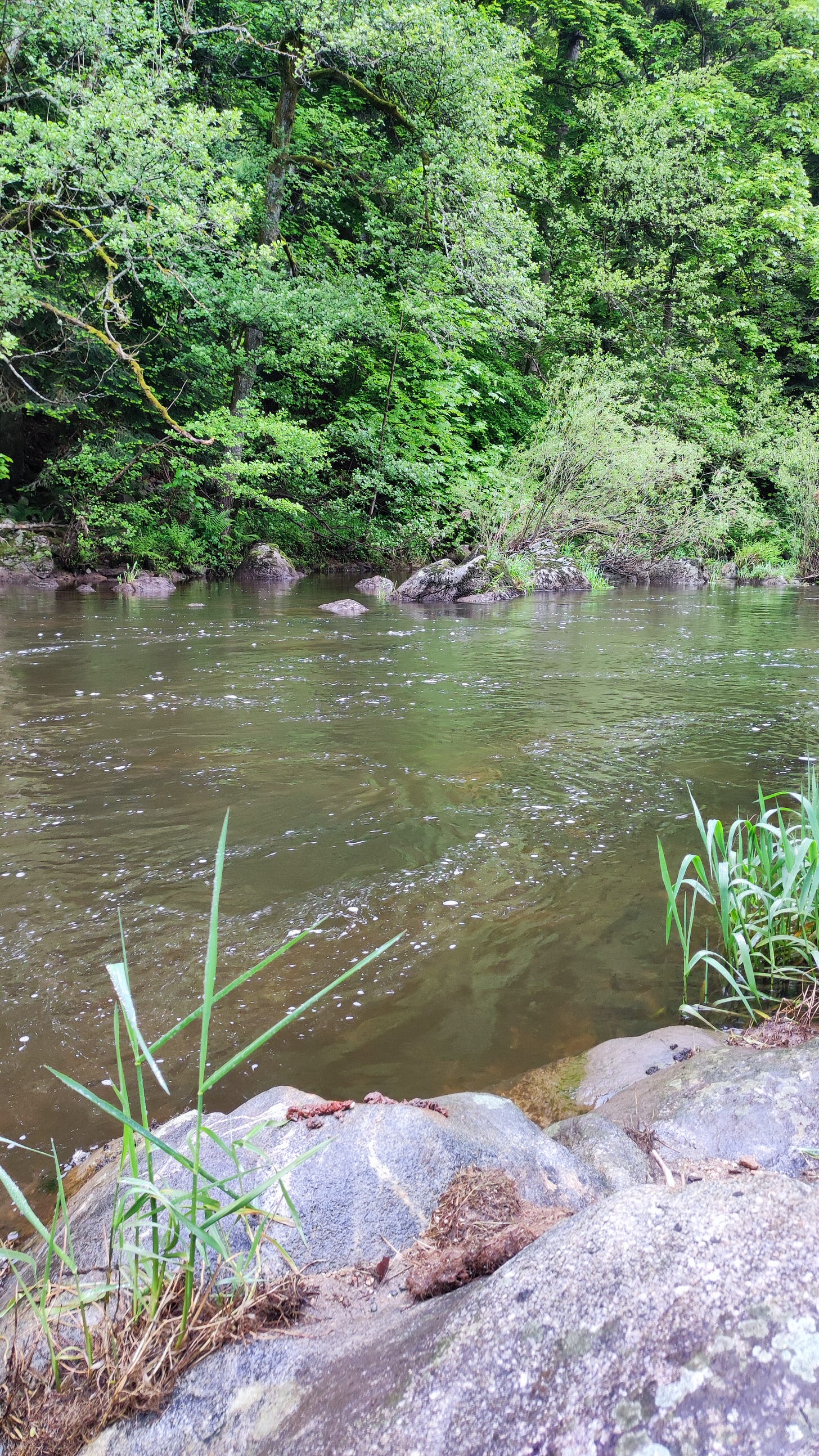
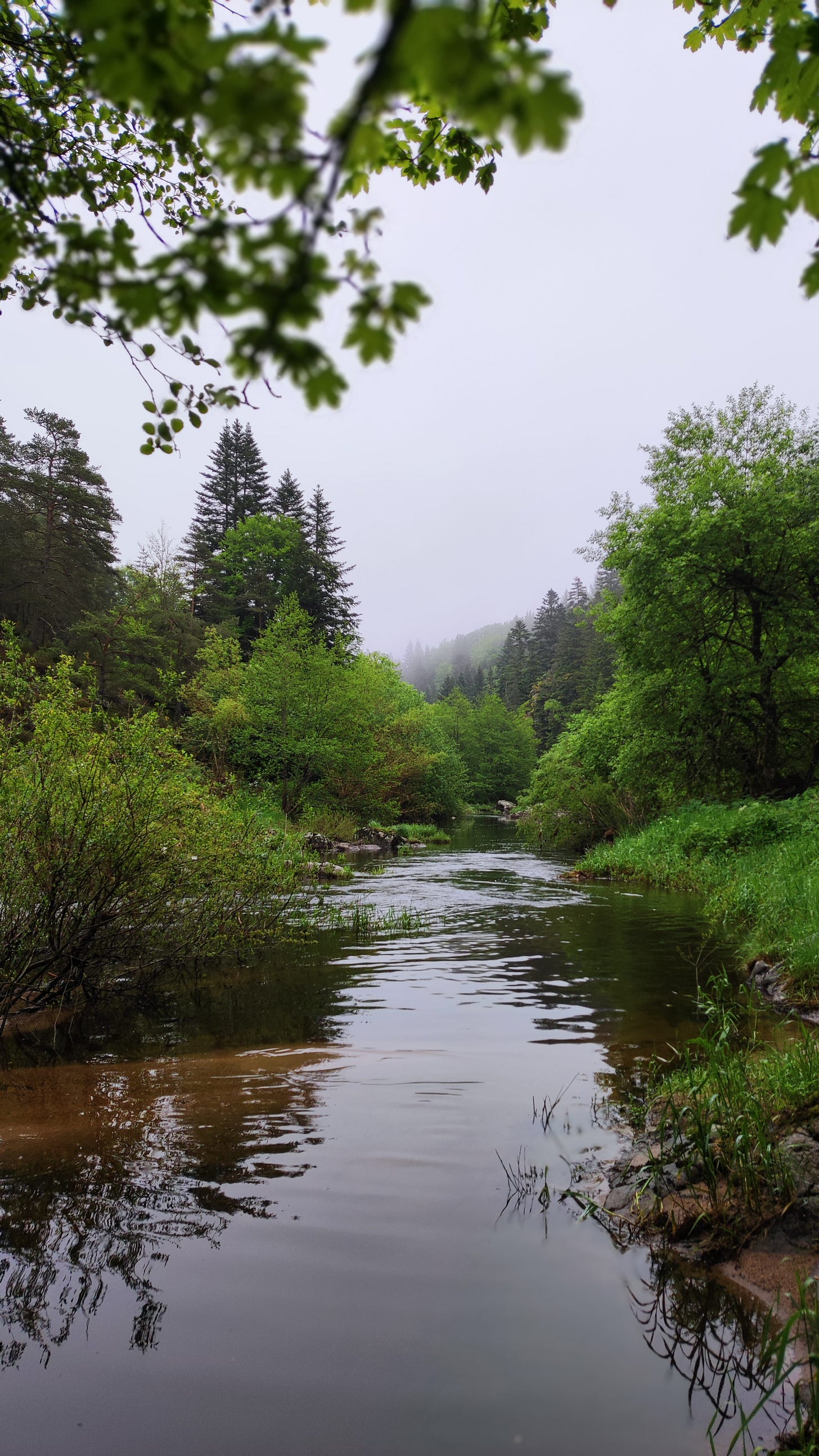
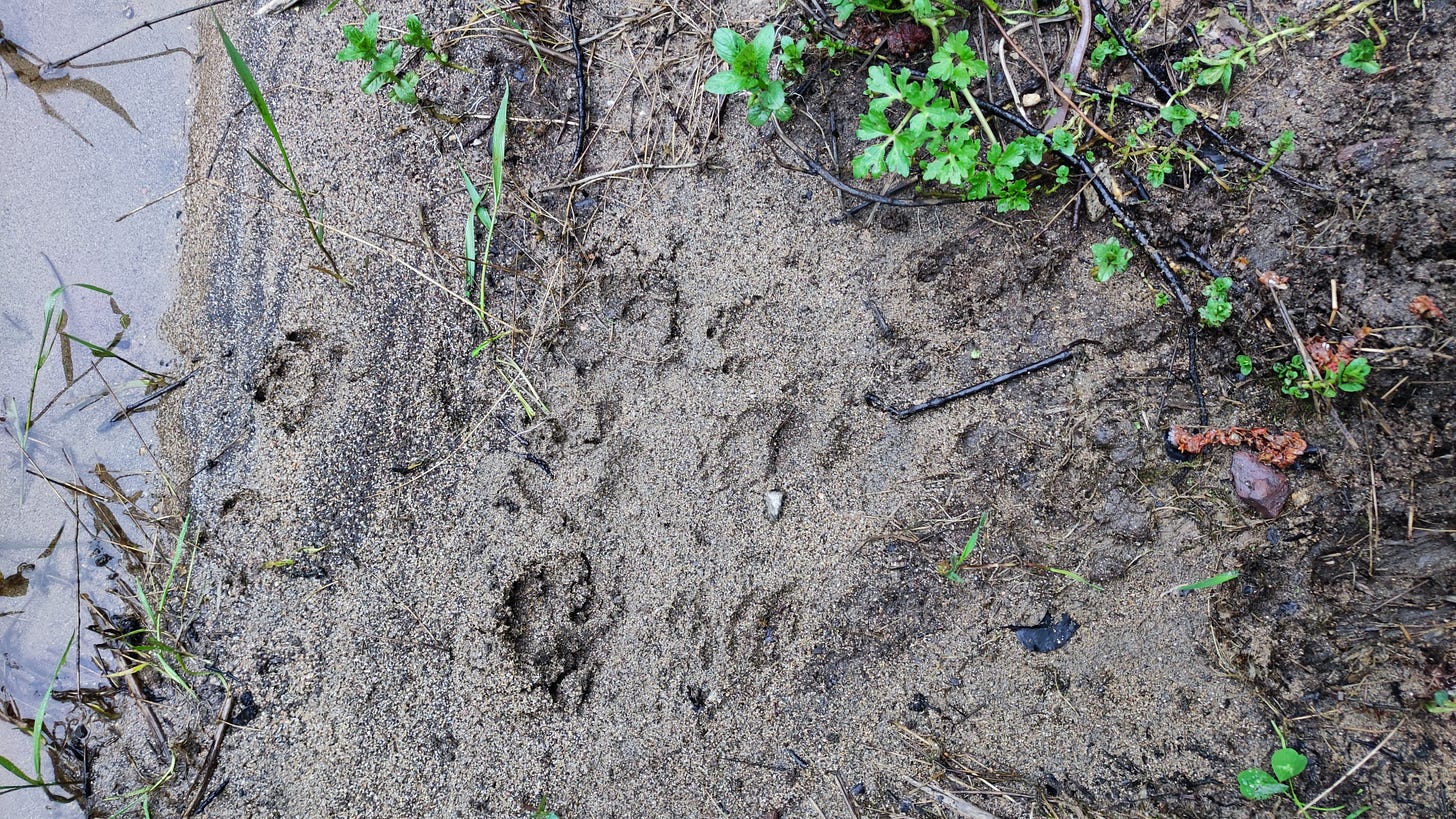
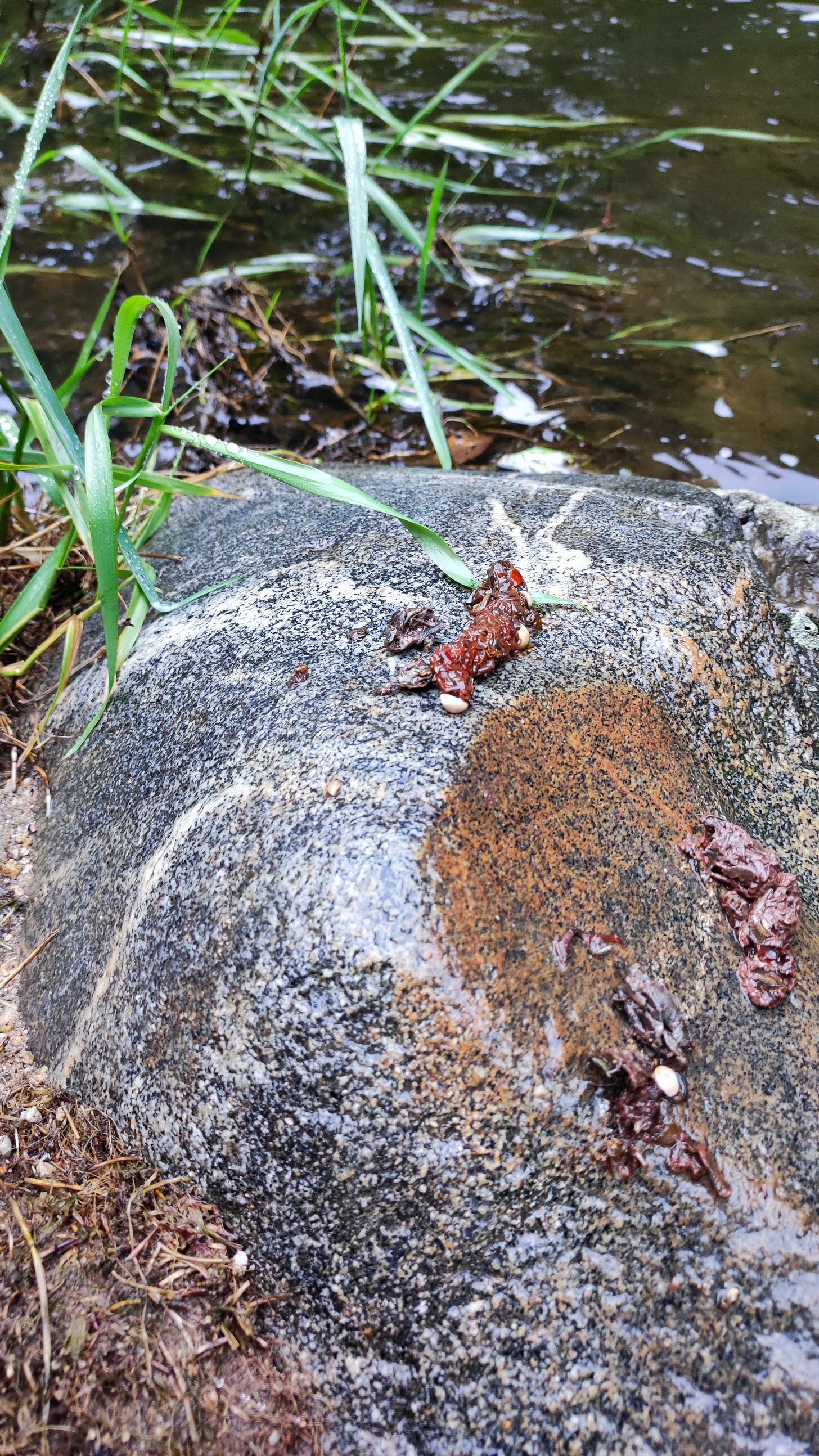


Beautiful, Alexander. I admire your demonstration of the way our senses can tell us so much - smell (the poop) and hearing (the birds), as well as sight (the otter). Soft skills, soft presence, meeting nature on her own terms -- it's all so appealing, and so healing. Every encounter carries gifts.
Regarding language, I wanted to share this verse that I first heard from Bill Plotkin at an Animus Valley Institute retreat. It's from Nalungiaq, an Inuit woman interviewed by ethnologist Knud Rasmussen in the early twentieth century.
In the very earliest time
When both people and animals lived on earth
A person could become an animal if he wanted to
and an animal could become a human being.
Sometimes they were people
and sometimes animals
and there was no difference.
All spoke the same language
That was the time when words were like magic.
The human mind had mysterious powers.
A word spoken by chance might have strange consequences.
It would suddenly come alive
and what people wanted to happen could happen--
all you had to do was say it.
Nobody could explain this:
That's the way it was.
Thank you for sharing Scribbles and Sketches (and Splendid Trees)! I'm thoroughly enjoying this month's seasonal notebook. It's funny how some of the entries just keep growing legs - despite having brief notes and a plan(ish) for each day, it sometimes surprises me how little the writing itself pays heed to any of my intentions!